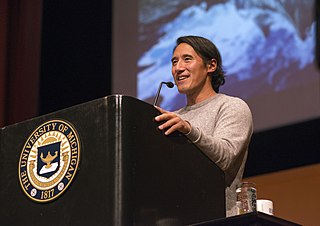A Quote by Jan Karon
I made real sacrifices and took big risks. But living, it seems to me, is largely about risk.
Related Quotes
The thing is doing it, that's what it's all about. Not in the results of it. After all what is a risk? It's a risk not to take risks. Otherwise, you can go stale and repeat yourself. I don't feel like a person who takes risks. Yet there's something within me that must provoke controversy because I find it wherever I go. Anybody who cares about what he does takes risks.
The trouble is that the risks that are being hedged very well by new financial securities are financial risks. And it appears to me that the real things you want to hedge are real risks, for example, risks in innovation. The fact is that you'd like companies to be able to take bigger chances. Presumably one obstacle to successful R&D, particularly when the costs are large, are the risks involved.
After I was released, people used to keep asking me, 'what's it like to be free? And it was very difficult for me to answer. I'd always felt free. As far as my state of mind was concerned, I didn't feel any different...People ask me about what sacrifices I've made. I always answer: I've made no sacrifices, I've made choices.
At this stage in my career, I don't have to take any big risks. You want to take a calculated risk, not one that leads to people saying 'yes, but there was that one time when she made that big mistake.' It's always a shame when that happens, especially if you've gotten by for decades without anything hugely tragic.
To laugh is to risk appearing a fool. To weep is to risk appearing sentimental. To reach out to another is to risk involvement. To expose feelings is to risk exposing your true self. To place your ideas and dreams before a crowd is to risk their loss. To love is to risk not being loved in return. To hope is to risk pain. To try is to risk failure. But risks must be taken, because the greatest hazard in life is to risk nothing.





































